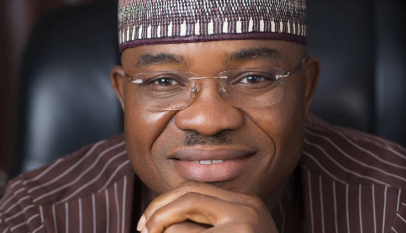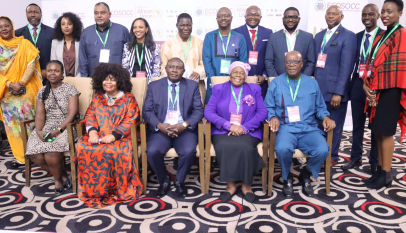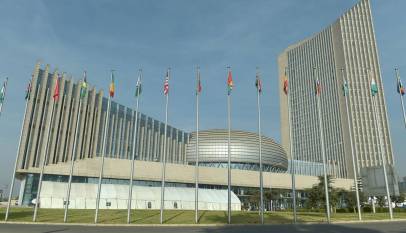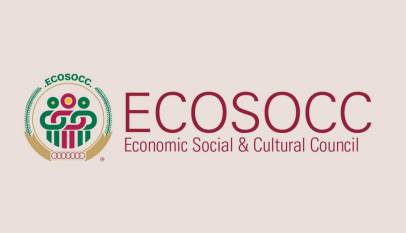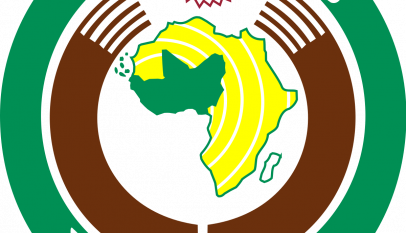On Africa Day 2020, AU ECOSOCC secretariat unveiled agenda for African media
In commemoration of Africa Day 2020, the secretariat of African Union Economic, Social and Cultural Council (AU ECOSOCC), hosted a roundtable discussion with journalists where the secretariat’s agenda for working with the African media was unveiled
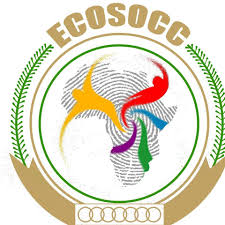
African Union Economic, Social and Cultural Council (AU ECOSOCC), a technical advisory organ of the African Union, was established under the provisions of Articles 5 and 22 of the African Union’s Constitutive Act, as the vehicle for building a strong partnership between African governments and all segments of the African Civil Society.
The Statutes establishing AU ECOSOCC was adopted by the Assembly of African Heads of State and Governments (AU Assembly) at the Assembly’s Third Ordinary Meeting in July 2004. According to Article 22 of the AU Constitutive Act, “The Economic, Social and Cultural Council shall be an advisory organ composed of different social and professional groups of the Member States of the Union” while “The functions, powers, composition and organization of the Economic, Social and Cultural Council shall be determined by the Assembly.”
According to Article 3 of the AU ECOSOCC Statutes, the Council shall be an advisory organ of the AU composed of different social and professional groups i.e Non-State Actors (NSAs) of the Member States of the Union. The social groups are those representing women, children, the youth, the elderly and people with disability while the professional groups include associations of artists, engineers, social workers, media, legal professionals, and academia, amongst others. Others are Non-governmental organizations (NGOs), community-based organizations (CBOs); cultural organizations.
Since its establishment, the ECOSOCC secretariat had been domiciled at the African Citizens and Diaspora Directorate (CIDO) at the AU Commission in Addis Ababa, Ethiopia. However, in 2018, the Zambian government and African Union signed an agreement for the former to host the secretariat of ECOSOCC in Lusaka, the Zambian capital. In December 2019, the ECOSOCC secretariat officially relocated to Lusaka. In commemoration of Africa Day 2020, held every May 25, the secretariat hosted a roundtable discussion with African journalists where its agenda for working with African media was unveiled.
While addressing members of the fourth estate of the realm, William Carew, principal coordinator of the ECOSOCC secretariat said his organisation’s mandate was “to lay down the needs of the African citizenry across the continent at the feet of the African Union and popularize the activities of the African Union among the citizens on the continent.” He however expressed his displeasure at the fact that most African citizens especially the youths knew more about the International Federation of Association Football (FIFA) than they knew about the AU adding that the African media had a major role to play in bringing the AU closer to the people.
“You will agree with me that the African Media has a major role to play in bringing the AU closer to the people for them to know that it is our own continental body. As ECOSOCC, we want to work with you as part of our mandate in achieving this. We do have an open-door policy to all our stakeholders and that includes the media… Our engagement with the media should really not just wait for when the AU Presidential Summit convenes but more importantly to give visibility to the work of the AU which is our continental institution,” Carew told the journalists.
Mr Carew said the ECOSOCC national chapter representatives across the 55 respective AU Member States had also been accorded the opportunity to leverage national media to popularize the messages generated by the Council in commemoration of Africa Day 2020, with a particular focus on the AU theme of the year i.e Silencing the Guns: Creating conducive conditions for Africa’s Development.
In his remarks, acting presiding officer of the ECOSOCC, Mr Denise Kodhe, stressed the importance of the media’s role in the work of the ECOSOCC as well as in Africa’s overall development agenda, noting that without the media a lot of the information on the efforts and challenges of the civil society would not be known. “Without the media, a lot of information on our activities and challenges will not be known. Therefore, the media should not just be informed rather should be involved in all discussions; the media should be part and parcel of whatever we are doing so that they are able to share their ideas as well as write quality reports,” he said.
In addition, Mr Kodhe said the NSAs collectively had a very important role to play in addressing Africa’s challenges including the COVID-19 crisis adding that the secretariat had been hosting series of webinars, in partnership with the AfDB to sensitize and inform African citizens on how to deal with the pandemic. “Civil Society Organisations at Member States level have also been supporting national governments’ response initiatives against COVID-19 to help citizens understand the pandemic,” he added.
Mr Kodhe stated that, contrary to popular belief, civil society organizations were not enemies of governments, rather they were partners in progress adding that the government-civil society partnership will help Africa achieve a lot. “As ECOSOCC, we are making sure we work in tandem with governments; as much as we have room to criticize positively in terms of enabling our governments to improve their performance and provide good governance, we also need to work together to support the initiatives that the governments are coming up with,” he said.
While explaining to the journalists the day-to-day operations of ECOSOCC secretariat, Mr Kyeretwie Osei, head of programmes at the secretariat, said their role was to establish mechanisms for African civil society to interact with the AU. “We want to bring young people closer to the AU; we will be organizing townhalls with youth groups to talk about the African Continental Free Trade Agreement (AfCFTA) and other policies and programmes of the AU. We also want to establish AU clubs in schools and universities so as to increase knowledge, familiarity and interest about the AU in the students’ minds,” he stated.
Mr Osei said for proper coordination, the civil society members of ECOSOCC had been organized into an ECOSOCC General Assembly, whose task is “ensuring the interests and perspectives of African citizens reflect in the work of the AU.” Other than the General Assembly whose ordinary session takes place once every two years, there are also thematic committees established as key operational mechanisms of ECOSOCC, whose role is to formulate opinions and provide inputs into the policies and programmes of the AU.


